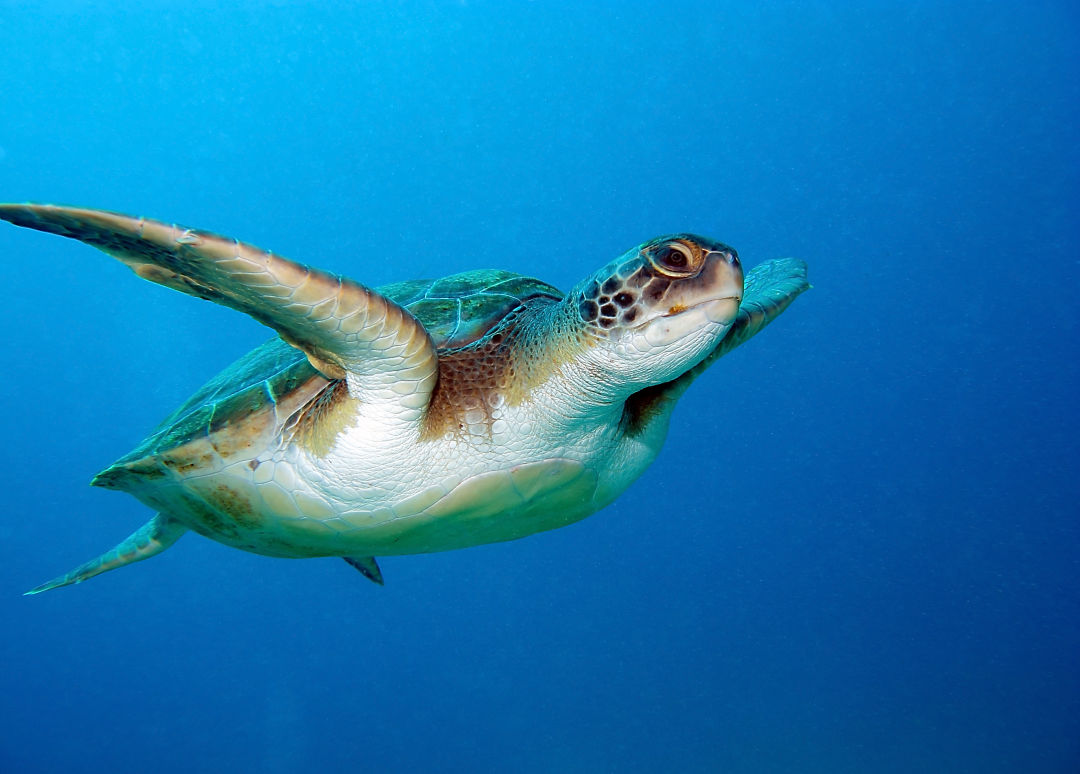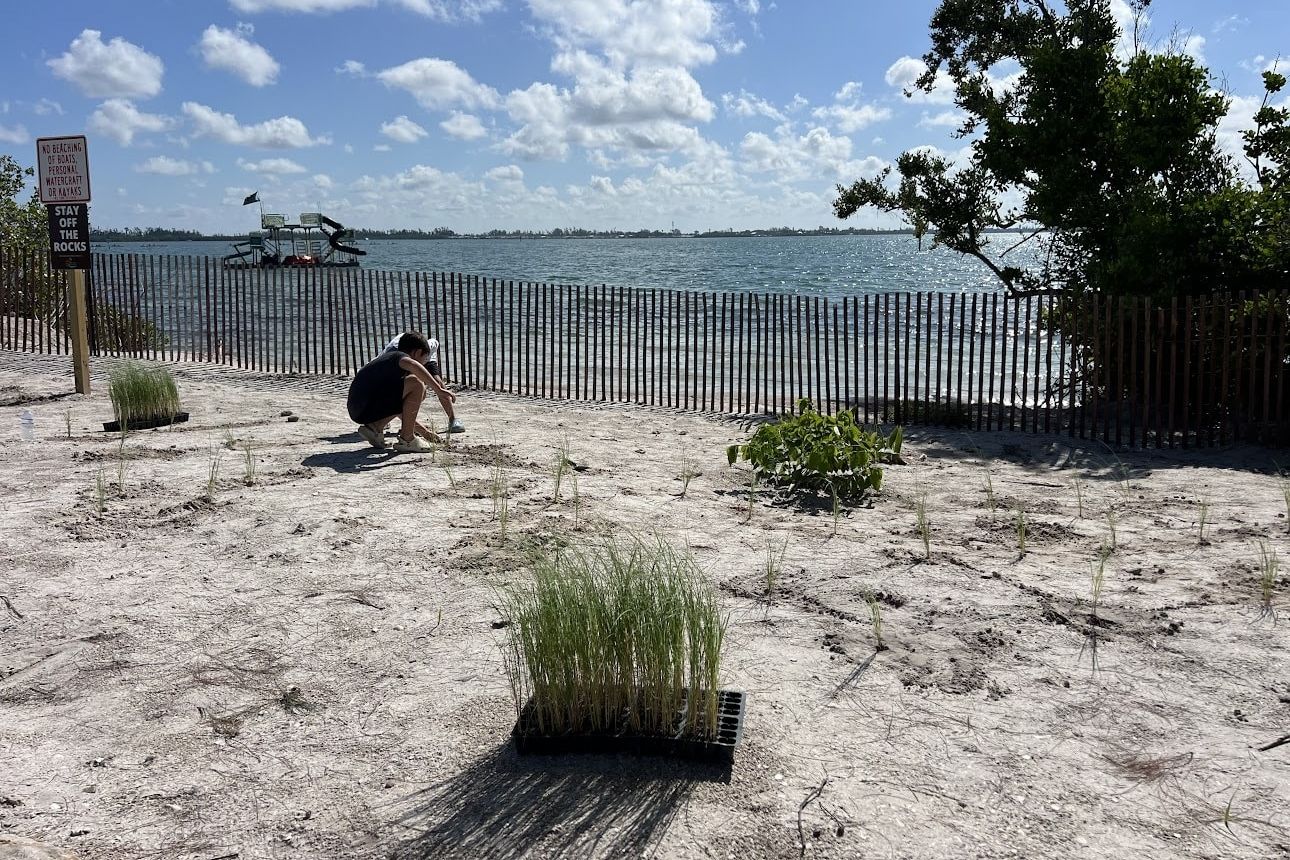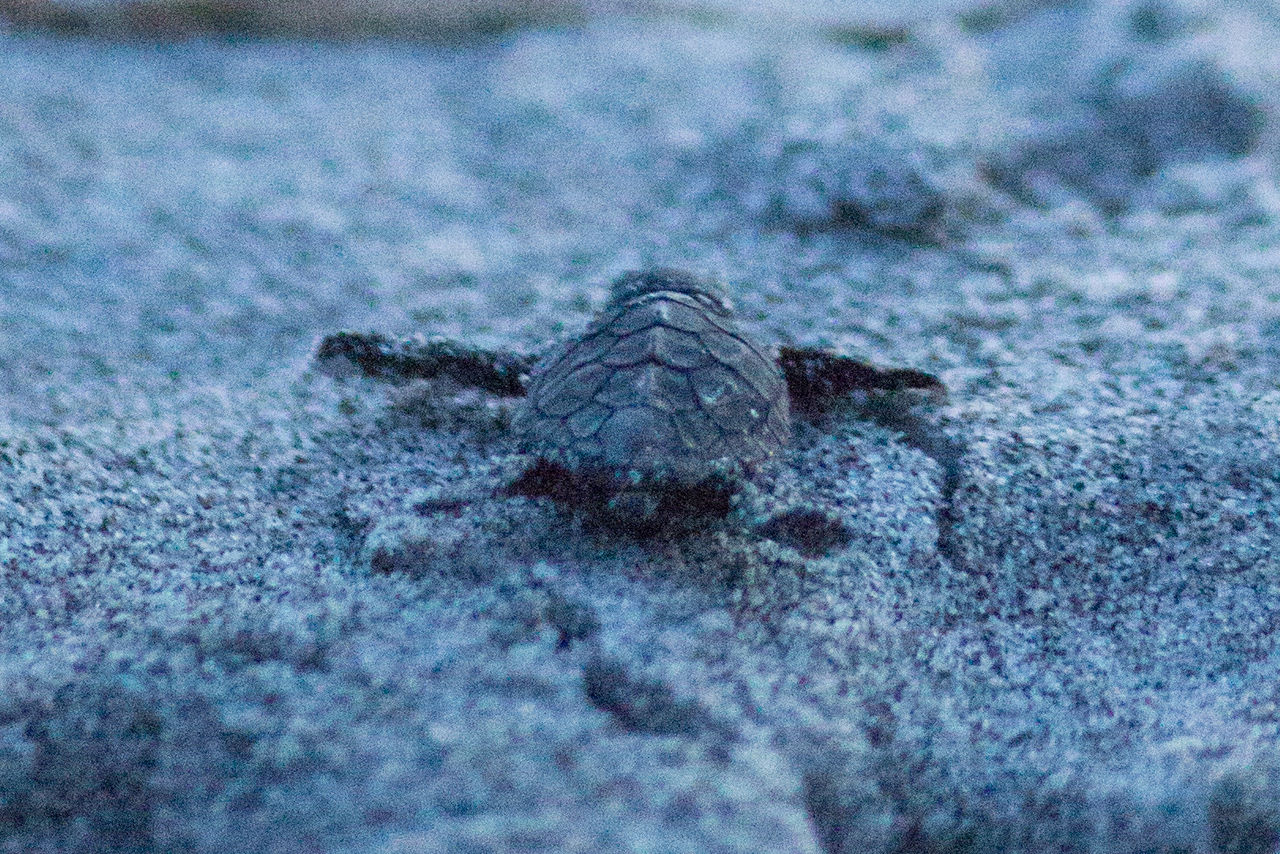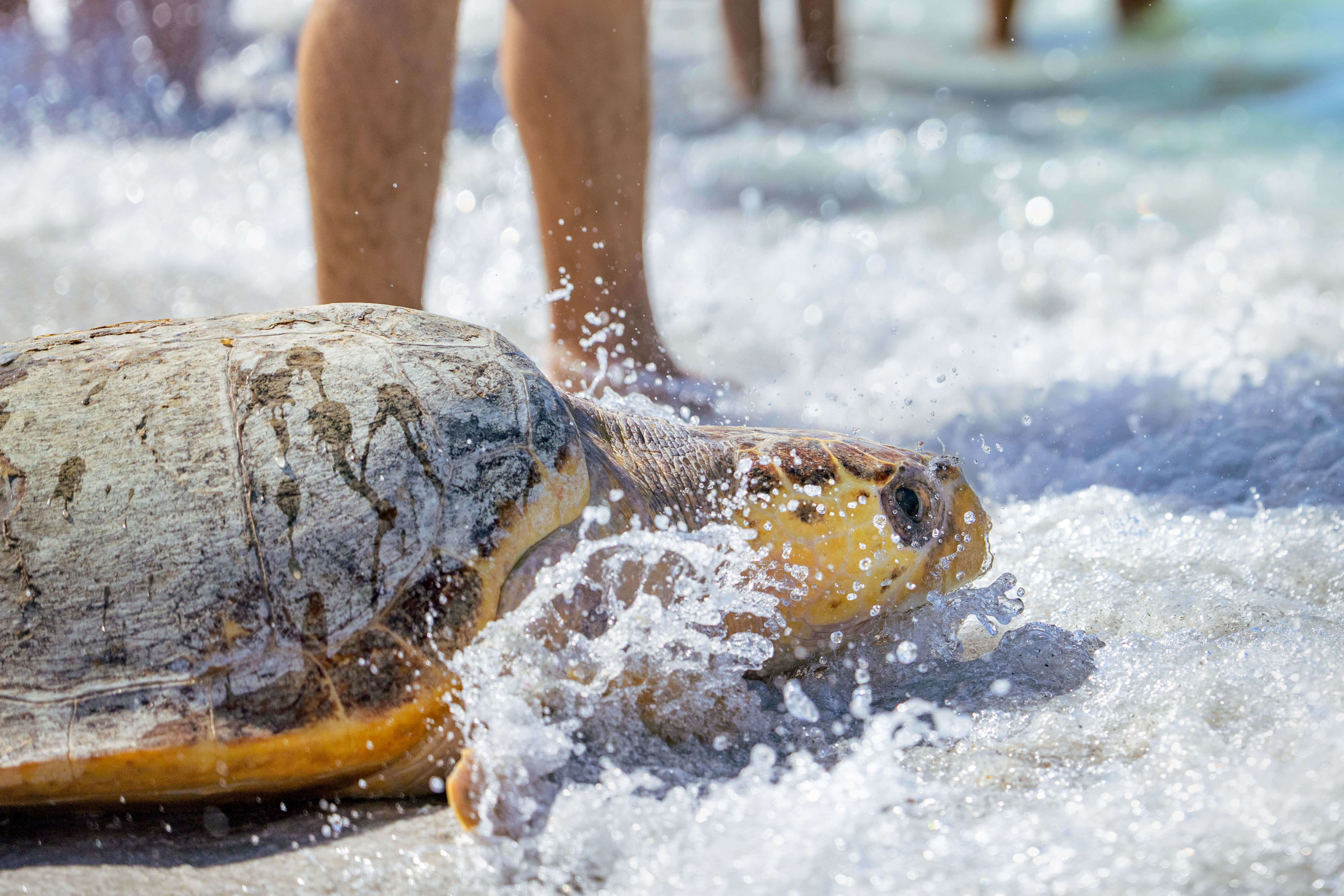How to Help Keep Sea Turtles Safe This Summer

A loggerhead sea turtle
Image: Natursports/Shutterstock.com
Summer means sea turtle nesting season—and while we all love this time of year, we must remember to look out for turtles both on the shore and while we're in the water.
Recently, a post about a sea turtle who washed up on Siesta Key circulated widely on Nextdoor. The turtle was dead and her shell was badly damaged. Mike Cosentino, the original poster, wrote, “This poor girl washed up between [Siesta Key] beach accesses 2 and 3 last night. In my 57 years, I’ve never seen such a horrific disfigurement. Clearly, she was hit by a boat.”
This turtle has been picked up by Mote Marine Laboratory and Aquarium, says Stephannie Kettle, Mote's public relations manager. “Our team is necropsying the turtle to officially determine the cause of death, which is very likely to have been a boat strike," she says. "We necropsy to confirm [the cause of death] and to see if there is anything else of importance is going on."
Sea turtle nesting season in Sarasota officially runs from May to October, meaning boaters and beachgoers should be extra vigilant right now. “We generally see an increase in boat strikes in the summer, as more turtles are in the area for nesting season and there are also more boats on the water for summer activities,” says Kettle.
Mote offers tips on how to help prevent another incident like this from occurring. Boaters should wear polarized lenses, use a spotter, abide by slow- or no-wake zones, properly dispose of trash so it does not fall into the water and call proper authorities if a turtle in distress is spotted. To help a distressed sea turtle—or manatee, dolphin or whale—call Mote's 24/7 hotline at (888) 345-2335 if you're in Sarasota or Manatee counties. Anyone outside the two counties should reach out to the Florida Fish and Wildlife Conservation Commission's 24/7 hotline at (888) 404-FWCC.
Most importantly: “Do not attempt to assist an animal on your own. You could harm yourself or further harm the animal," Kettle says. "Call trained responders immediately, take photos and video, and note your coordinates to ensure the fastest possible response time."



